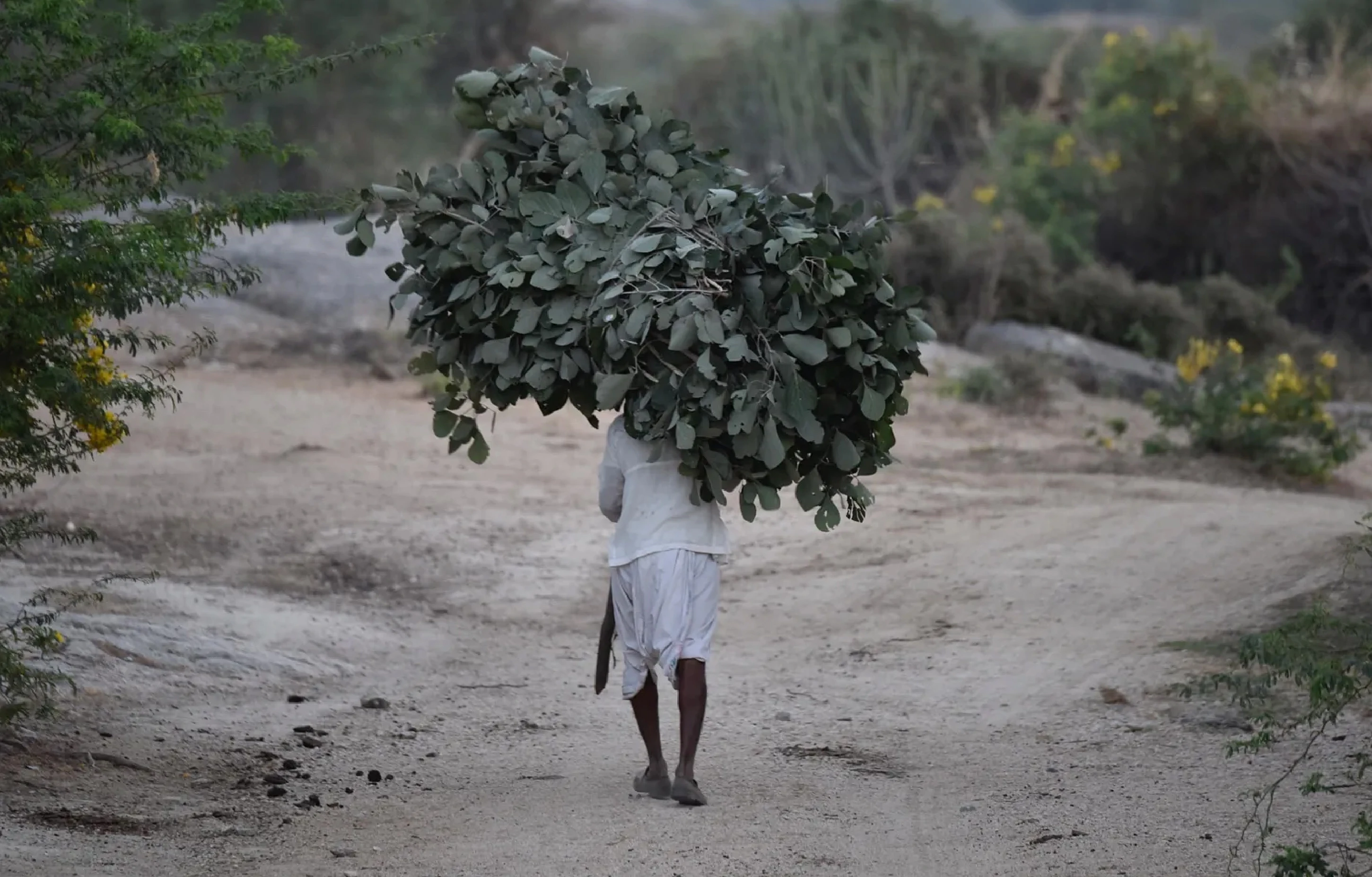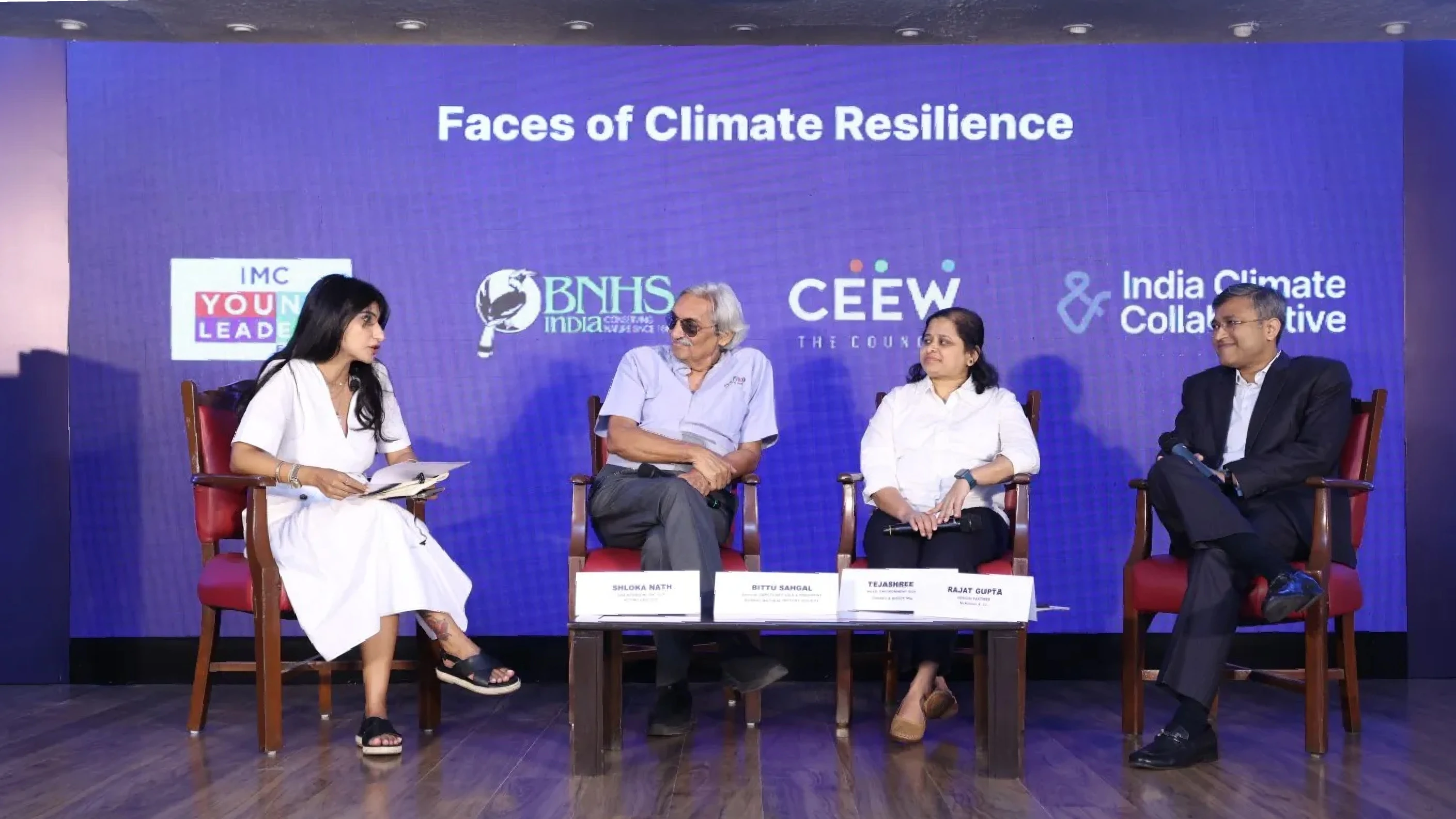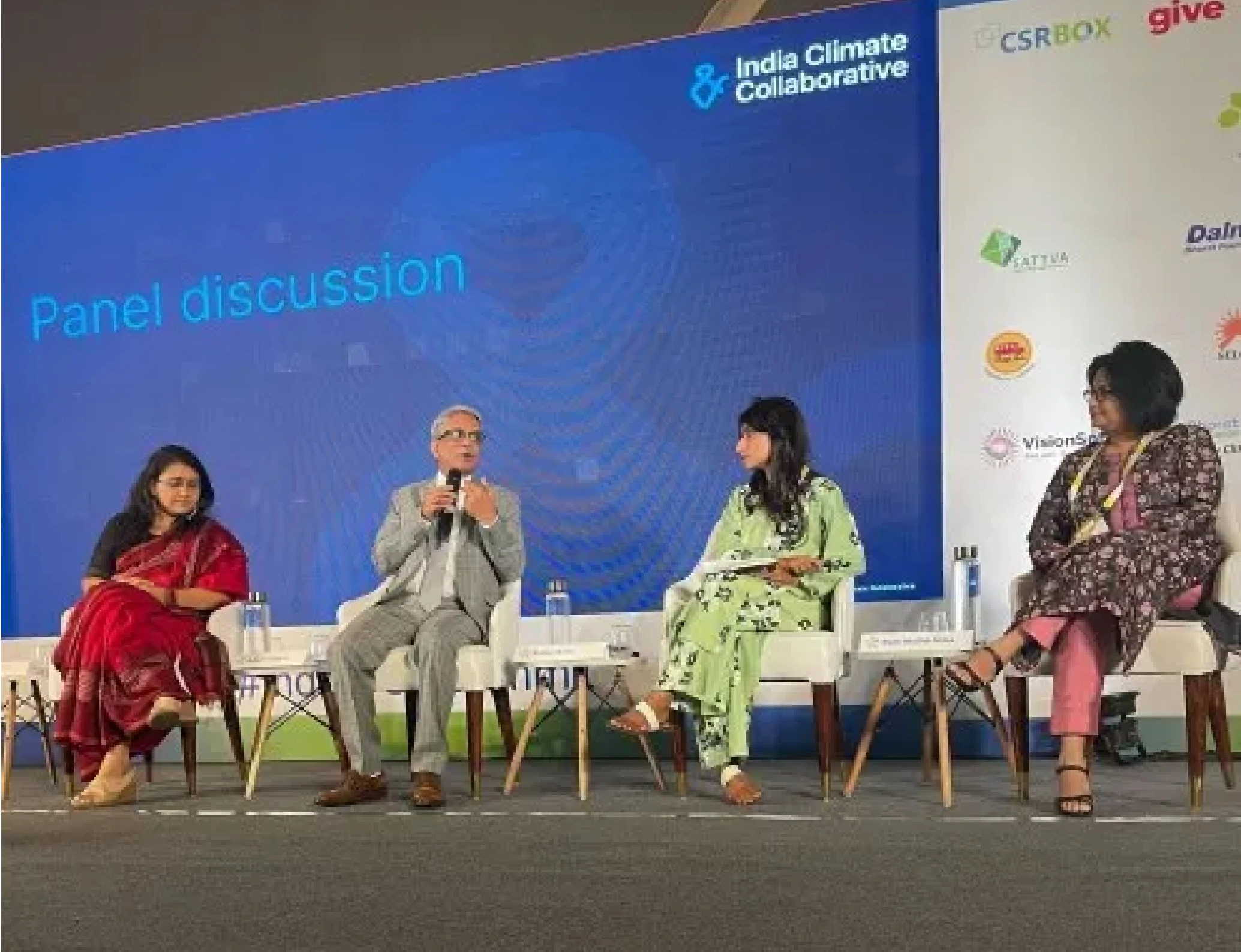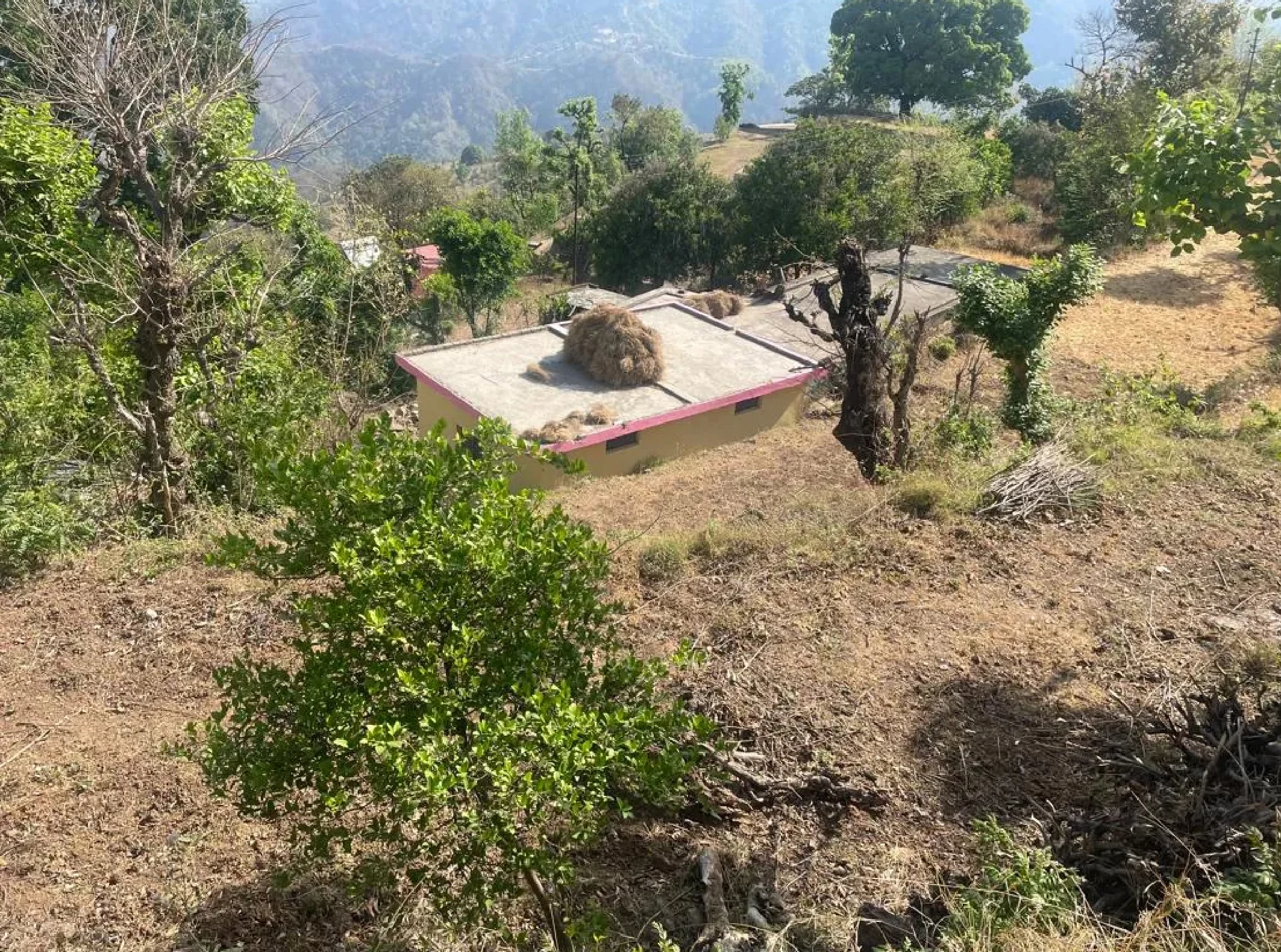Highlights from the ICC’s efforts to mainstream collaborative work in the climate ecosystem
From planning events to reach wider audiences, and amplifying thought leadership for Indian climate philanthropy, 2022 has helped us strengthen our networks and visualise our goals better. Here’s a summary of our ongoing efforts to build a people-first climate narrative for India.
A significant priority for the ICC is to bring greater visibility to our partners’ efforts through events, including exhibitions and discussions, to mainstream climate action, and to add nuance to our evolving conversations.
Second Nature | Exploring the potential of NbS for India’s development in a podcast series
When we talk about climate action, we see a lot of competing priorities. Should we invest in reducing our emissions or building resilience to climate disasters? How do we choose between the needs of people and the needs of biodiversity? To explore the role NbS can play in addressing these challenges, the ICC and the EdelGive Foundation (through the ICC-EdelGive Alliance) produced a six-part podcast series ‘Second Nature: A New Look at India’s Climate Future’, featuring practitioners, government officials, and financiers, among others. The series explores what NbS look like, the existing landscape of nature-based financing in India, how NbS can drive economic growth, and how governments and businesses can help scale up NbS across the country.
Listen to our podcast ‘Second Nature’ now on Spotify, Podbean, Apple Podcasts, Google Podcasts, or Youtube.
ICC’s Annual Report, 2022 | Charting an informed strategy for catalytic climate action.
We compiled the ICC’s work over a time period of two years (2018–2020) into our Annual Report, 2022, published in January 2022. The report encapsulates insights derived on the evolving climate philanthropy ecosystem in India. It delves into India’s climate funding landscape and specific climate sub-sectors to identify investible opportunity areas that can help elevate India’s climate ecosystem.
The report forecasts trends in the ecosystem, such as: (i) Traditional domestic philanthropists will likely continue to focus on funding adaptation-aligned programs for improving rural outcomes, especially as climate impacts worsen; (ii) A growing segment of new-age Indian entrepreneurs-turned-philanthropists from technology sector unicorns are starting to offer impact-linked capital for climate tech start-ups; (iii) International foundations and philanthropists are beginning to look at India with a climate-first agenda; (iv) The CSR policy environment may evolve to be more favourable towards climate action as this sector gains more traction; (v) Individual giving, which skyrocketed during the pandemic, could emerge as a force for climate action.
Read our Annual Report now to know more about how we envision climate action in the coming years.

Photo credit: Ms. Shloka Nath, Acting CEO, ICC
Faces of Climate Resilience | Communicating climate risk assessments and solutions through film
CEEW, in partnership with the ICC, Edelgive Foundation, and Drokpa Films, created a series of 16 short films called ‘Faces of Climate Resilience’, which captures how vulnerable geographies and communities across 5 states in India are experiencing climate change, and developing local adaptations to climate risks. Through these short films, we sought to translate data collected in CEEW’s 2021 report that mapped climate vulnerabilities at a district-level for wider reach — by focusing on the lived experiences of people. This documentary series has since been screened at multiple venues across cities in India, as well as at the COP27 pavilions at Sharm-El-Sheikh, Egypt. On October 14, 2022, we co-organised a screening in Mumbai, along with IMC Young Leaders’ Forum, CEEW, and Bombay Natural History Society.
India CSR Summit 2022 | Exhibiting our work on climate solutions to funders.
We exhibited our ongoing work on high-impact climate solutions at the India CSR Summit 2022 in New Delhi on 15–16 November, 2022, to help funders better identify and understand climate solutions. During a session titled ‘Transforming India’s Climate Future’, we highlighted different types of climate solutions and identified how they intersect with other development priorities, by showcasing the work of three of our partners — SayTrees, Mahila Housing Trust, and SEEDS across agroforestry, urban resilience, and risk assessment. We also heard from three eminent CSR funders about the barriers and opportunities for CSR funding to climate solutions.
Learn more about our Climate Solutions Platform.

Ms. Shloka Nath (Acting CEO, ICC), Mr. Bittu Sehgal (President, BNHS), Ms. Tejashree Joshi (Head — Environment & Sustainability, Godrej & Boyce), and Mr. Rajat Gupta (Senior Partner, McKinsey & Co.).
A people-first climate journey | Envisioning climate philanthropy’s potential
We are also weaving inclusive, people-first climate narratives to aid our ongoing efforts to channelise funding towards climate action. Our stories aim to create an inclusive vision for climate action in India, communicate an evolving theory of change, as well as a shared understanding of India’s climate risks, progress, and challenges.
‘Big-ticket donations, philanthropic initiatives to tackle climate crisis begin to take shape in India’: Indulekha Aravind’s recent article in The Economic Times captures how the ICC’s vision, among others, is contributing to mainstreaming climate philanthropy in India.
‘Indian philanthropists need to become bolder, lead with trust, look for new areas to fund’ Forbes India’s Divya J. Shekhar captures Rohini Nilekani’s (winner of FILA 2022 Grassroots Philanthropist) philanthropic philosophy.
‘Why philanthropy needs to include a climate lens’: Shloka Nath, our Acting CEO, and Isha Chawla from our team (Associate, Climate Solutions Platform), make the case in this 2022 Climate Special in Forbes India for philanthropy to bring a climate lens to existing investments.

Ms. Foram Nagori (Head-CSR, TATA Power), Mr. Ashwini Saxena (CEO, JSW Foundation), Ms. Shloka Nath (Acting CEO, ICC), and Ms. Rumi Mallick Mitra (Corporate Responsibility Leader, EY Global Delivery Services).
‘Climate philanthropy: Building bridges’: In Business India’s COP27 edition, Padma Venkataraman from our team (Communications Associate) explores how domestic philanthropy can catalyse inclusive climate action, shape inclusive climate priorities, and unlock larger pools of finance in the long-term.
‘What philanthropists can offer’: Mirik Gogri (Sustainability Investor, Spectrum Impact — Family Office of Aarti Industries Ltd.’s Promoters) reflects on how philanthropists can better support the climate innovation landscape, in Business India’s COP27 edition.
‘New imagination, new methods’: In Business India’s COP27 edition, Sameer Shisodia (CEO, Rainmatter Foundation) introduces us to how he perceives our climate challenges, and how to frame the climate crisis.
‘Bend the curve on nature loss’: Nyrika Holkar (Executive Director, Godrej & Boyce Co. Ltd.) considers the value of nature’s ecosystem services and the consequences of extreme climate events, in Business India’s COP27 edition.
‘Time to scale-up nature-based solutions to forge a low-carbon and climate-resilient future for India’: In an opinion for Business Insider India, Dr. Ajita Tiwari Padhi from our team (Program Manager — Land Use) and Sunil Kumar Nandamudi explain the need to scale up NbS efforts in India, to accelerate climate action and build resilience to climate impacts.

Photo credit: Dr. Ajita Tiwari Padhi, Program Manager- Land Use, ICC

Subscribe to our Newsletter
Join ICC's monthly newsletter and read more about uplifting climate narratives, innovative solutions, and other updates.




